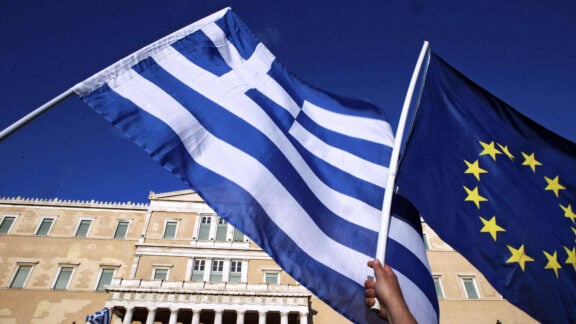British tourists flock to the sun-kissed Greek islands in June, swarming in on packed flights and cut-price air fares, relieved to have escaped the usual great, grey British summer.
This year they had the Euro 2016 football tournament to spice up their annual pilgrimage, but whatever the fortunes of the British teams, their European holiday will always be remembered for one historic event – the Brexit referendum result.
I learned of it on a picture-perfect morning in a seaside village in the south of Crete. At a waterfront cafe, a British family were noticeably reflective as the waiter brought them their coffee, orange juice and yoghurt with honey; not a good omen I thought. An hour later, the shocking news was confirmed.
A British couple in their youthful early sixties – he from Somerset, she originally from Germany, spoke to me of their sadness and no little anger. “We can’t believe this has happened,” she says, “I was in tears when I found out.”
In the small grocer’s shop that sells home-made jam where our conversation takes place, the dismayed Brits find little sympathy from the proprietor. “In Greece we should do the same,” says the middle-aged shopkeeper. “The EU is not good for any of us.”
While that pessimism may be understandable to hear in Greece, it’s not one shared by many Greeks, who see Britain’s exit as profoundly disturbing, leaving the EU weaker, the spectre of the politics of the extreme-right spreading, and the EU even more controlled by Germany and France.
For many the psychology of the decision – to divorce Britain from Europe, to walk away from a shared future, is what hurts the most.
Restaurant manager Anastasia Magelaki, who runs a beachfront taverna at Petres Geraniou on Crete’s north coast, says Brexit is bad news for the local tourism industry, with Greece likely to become more expensive for the British.
“It’s a worry,” says Ms Magelaki, who in the Australian summer swaps Crete for Melbourne, where she works as a chef in Oakleigh.
But she says she understands why Britain chose to leave the EU, and thinks other countries will want to do the same.
“The EU works for people who have money. It doesn’t work as it should,” says Magelaki, who believes Greece would be better off out of the eurozone.
“If they put it to a vote in Greece we’d leave the euro and leave the EU too. Young people are leaving, they can’t find jobs, and it’s getting worse.”
The Greek Australian mother of three fears that without Britain at the table, Germany will dominate the EU more than ever.
“It would be better if the UK had stayed. I want to travel to England, my children do too. Now it will be more difficult.”
Given that immigration was the single biggest issue in the minds of most Leave voters in the UK, Magelaki’s response reflects her own experience.
“When I was young I remember my mother telling me I was a migrant to Australia.
“We should help the migrants coming to Europe, and we should do it together.”








